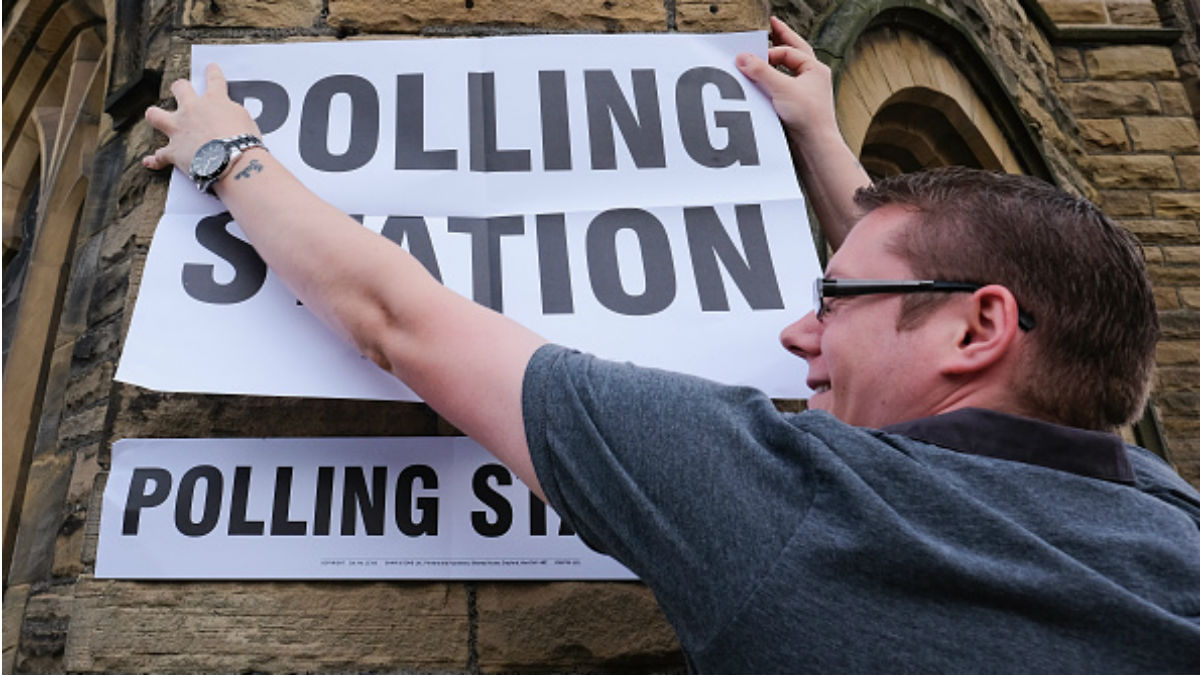Should Theresa May call an early general election?
William Hague warns 'trouble is coming' over Brexit and urges PM to look for bigger majority

A free daily email with the biggest news stories of the day – and the best features from TheWeek.com
You are now subscribed
Your newsletter sign-up was successful
27 June
With Britain still deeply divided over the outcome of the EU referendum and the two major political parties divided over who should lead them forward and how, is a general election the only way out of the post-referendum chaos?
The next one isn't due until 2020, but a legislative loophole allows a two-third majority of MPs to set an earlier date.
The Week
Escape your echo chamber. Get the facts behind the news, plus analysis from multiple perspectives.

Sign up for The Week's Free Newsletters
From our morning news briefing to a weekly Good News Newsletter, get the best of The Week delivered directly to your inbox.
From our morning news briefing to a weekly Good News Newsletter, get the best of The Week delivered directly to your inbox.
Now, a growing number of politicians and commentators are arguing that a prompt general election is the only way to establish a credible mandate for the future.
"There is no shared understanding of what our country is or should be," argues Juliet Samuel in the Daily Telegraph. "Even inside the Leave campaign, there is no coherent idea of how the country should look."
According to party website Conservative Home, a Leave MP will almost certainly take the Tory top spot when members vote for their new leader – which creates problems of its own.
"Tory Remain refuseniks may well dig in to deny the new Government much of its business," the site says, leaving a pro-Brexit Tory government without a workable majority.
A free daily email with the biggest news stories of the day – and the best features from TheWeek.com
"A general election might not resolve the impasse, but no other means will be at hand that offers a chance of doing so."
The next Tory leader "will immediately come under pressure to call an early election", says The Independent. A general election could be held as soon as this autumn, or early in 2017.
At the moment, it's almost impossible to predict what the outcome might be if Britain does go to the polls within a year.
Before the referendum, Labour leader Jeremy Corbyn declared he was "very ready" to contest a snap election. However, the open lack of faith in his leadership, which has seen more than a dozen resignations and one sacking in the shadow cabinet, does not bode well for his ability to win a majority at the polls.
Then there are the Liberal Democrats, who had been looking moribund since their decimation in the 2015 elections but who have proven to be the surprise winners of Brexit.
Their pledge to block Britain's withdrawal from the EU if elected has seen thousands sign up to the party and could end up being the springboard that propels them back to the forefront of British politics.
-
 What to know before filing your own taxes for the first time
What to know before filing your own taxes for the first timethe explainer Tackle this financial milestone with confidence
-
 The biggest box office flops of the 21st century
The biggest box office flops of the 21st centuryin depth Unnecessary remakes and turgid, expensive CGI-fests highlight this list of these most notorious box-office losers
-
 The 10 most infamous abductions in modern history
The 10 most infamous abductions in modern historyin depth The taking of Savannah Guthrie’s mother, Nancy, is the latest in a long string of high-profile kidnappings
-
 How corrupt is the UK?
How corrupt is the UK?The Explainer Decline in standards ‘risks becoming a defining feature of our political culture’ as Britain falls to lowest ever score on global index
-
 The Mandelson files: Labour Svengali’s parting gift to Starmer
The Mandelson files: Labour Svengali’s parting gift to StarmerThe Explainer Texts and emails about Mandelson’s appointment as US ambassador could fuel biggest political scandal ‘for a generation’
-
 Reforming the House of Lords
Reforming the House of LordsThe Explainer Keir Starmer’s government regards reform of the House of Lords as ‘long overdue and essential’
-
 How long can Keir Starmer last as Labour leader?
How long can Keir Starmer last as Labour leader?Today's Big Question Pathway to a coup ‘still unclear’ even as potential challengers begin manoeuvring into position
-
 Three consequences from the Jenrick defection
Three consequences from the Jenrick defectionThe Explainer Both Kemi Badenoch and Nigel Farage may claim victory, but Jenrick’s move has ‘all-but ended the chances of any deal to unite the British right’
-
 The high street: Britain’s next political battleground?
The high street: Britain’s next political battleground?In the Spotlight Mass closure of shops and influx of organised crime are fuelling voter anger, and offer an opening for Reform UK
-
 Biggest political break-ups and make-ups of 2025
Biggest political break-ups and make-ups of 2025The Explainer From Trump and Musk to the UK and the EU, Christmas wouldn’t be Christmas without a round-up of the year’s relationship drama
-
 The MAGA civil war takes center stage at the Turning Point USA conference
The MAGA civil war takes center stage at the Turning Point USA conferenceIN THE SPOTLIGHT ‘Americafest 2025’ was a who’s who of right-wing heavyweights eager to settle scores and lay claim to the future of MAGA